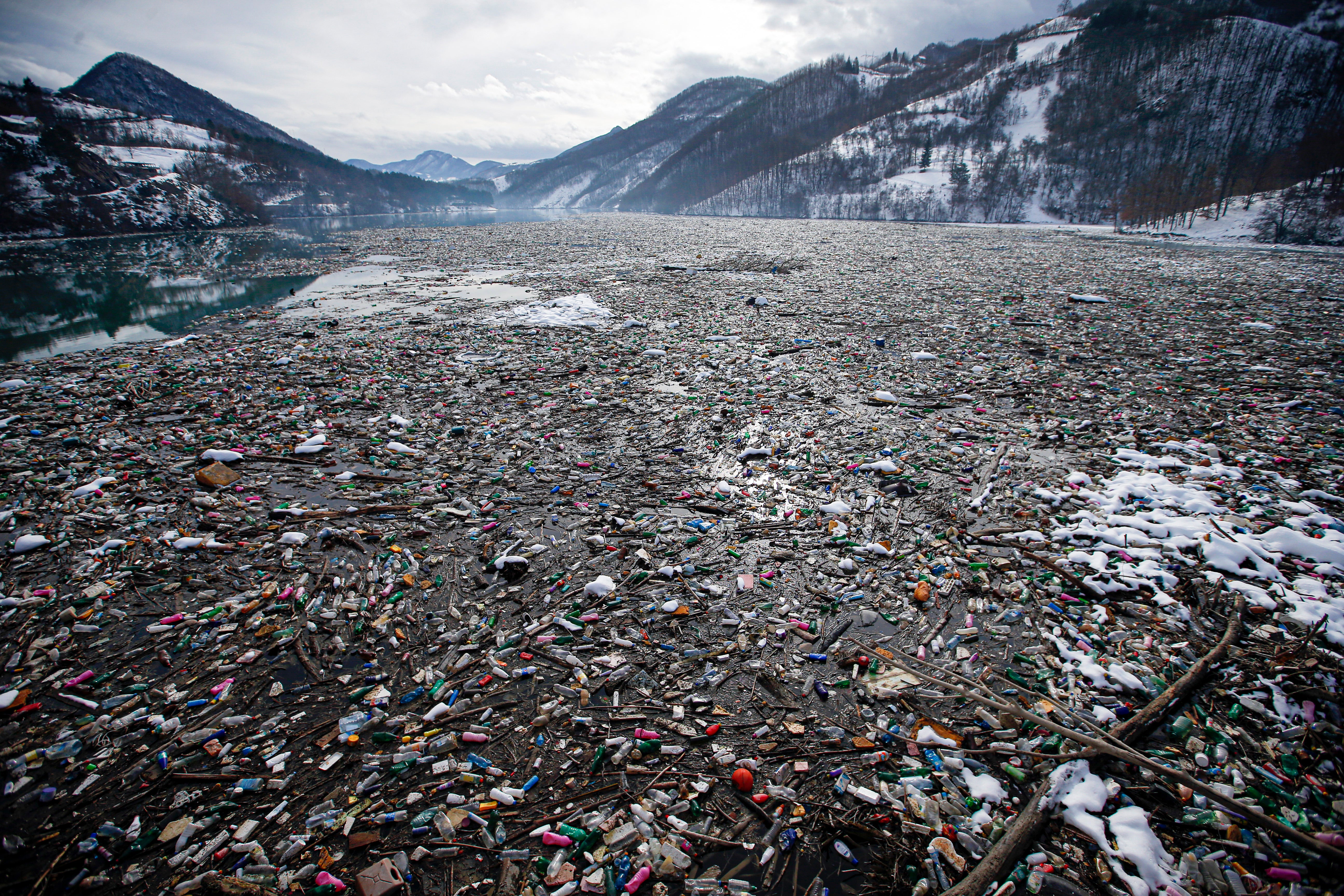Countries take steps toward curbing plastic waste in oceans
An intergovernmental conference has taken early steps toward drawing up an agreement to curb plastic pollution and marine litter around the world

Your support helps us to tell the story
From reproductive rights to climate change to Big Tech, The Independent is on the ground when the story is developing. Whether it's investigating the financials of Elon Musk's pro-Trump PAC or producing our latest documentary, 'The A Word', which shines a light on the American women fighting for reproductive rights, we know how important it is to parse out the facts from the messaging.
At such a critical moment in US history, we need reporters on the ground. Your donation allows us to keep sending journalists to speak to both sides of the story.
The Independent is trusted by Americans across the entire political spectrum. And unlike many other quality news outlets, we choose not to lock Americans out of our reporting and analysis with paywalls. We believe quality journalism should be available to everyone, paid for by those who can afford it.
Your support makes all the difference.An intergovernmental conference has taken early steps toward drawing up an agreement to curb plastic pollution and marine litter around the world, which can choke off sea life, harm food safety and coastal tourism, and contribute to climate change.
A draft resolution presented by Peru and Rwanda and backed by the European Union and several other countries, at the end of a two-day Geneva conference on Thursday amounts to a procedural step, but one that aims to build momentum for drawing up language as early as next year on a binding global deal.
The draft, which mostly aims to set up a committee to negotiate the language of a possible accord, is expected to be considered at a U.N. Environment Assembly meeting in February.
Supporters hope to unify fragmented efforts to curb such waste around the world. They hope to take into account the full lifecycle of plastics — from production to consumption to waste management, treatment and prevention.
Conference organizers say up to 12 million tons of plastic waste ends up in the oceans each year, and the flow is expected to triple by 2040. So far, nearly 5 billion tons of plastic produced since the early 1950s has ended up in either landfills or in the natural environment, they said.
“The end goal, or the target, is to have zero waste,” said Oliver Boachie, a special adviser to the government of Ghana which co-organized the conference with Ecuador, Germany and Vietnam. More than 1,000 representatives from over 140 countries took part, along with advocacy groups.
Boachie told reporters there were no holdouts among countries, but that some unspecified countries were still assessing prospects for an accord and drawing up national policies on the matter. There were no “fixed positions,” he said, expressing optimism that countries will eventually “come around.”
An agreement could be built around legislation in more than 120 countries — including European Union member states and nearly three dozen African countries — that restricts or bans single-use plastics. But some countries are hesitant: For example, Japan has expressed opposition to a binding deal — preferring a voluntary solution — and the United States has resisted calls for a ban on single-use plastics.
“There was no illusion that this would be a piece of cake,” Boachie said.